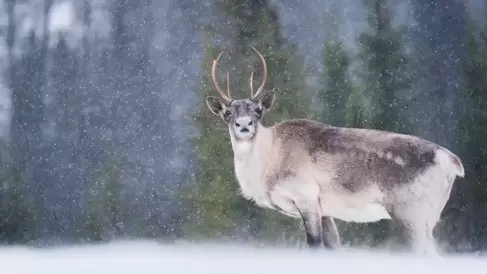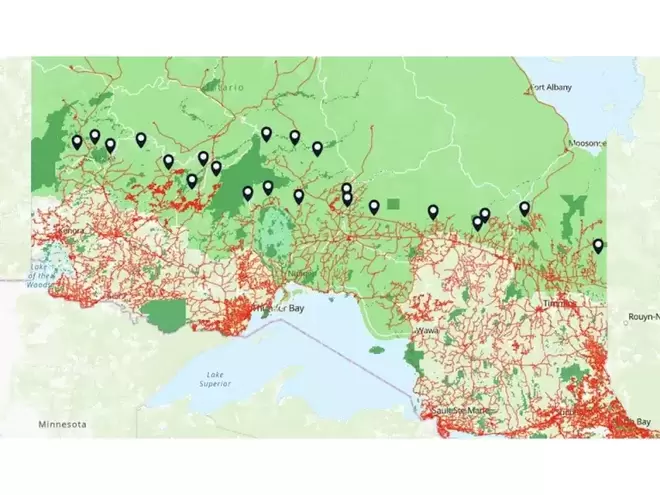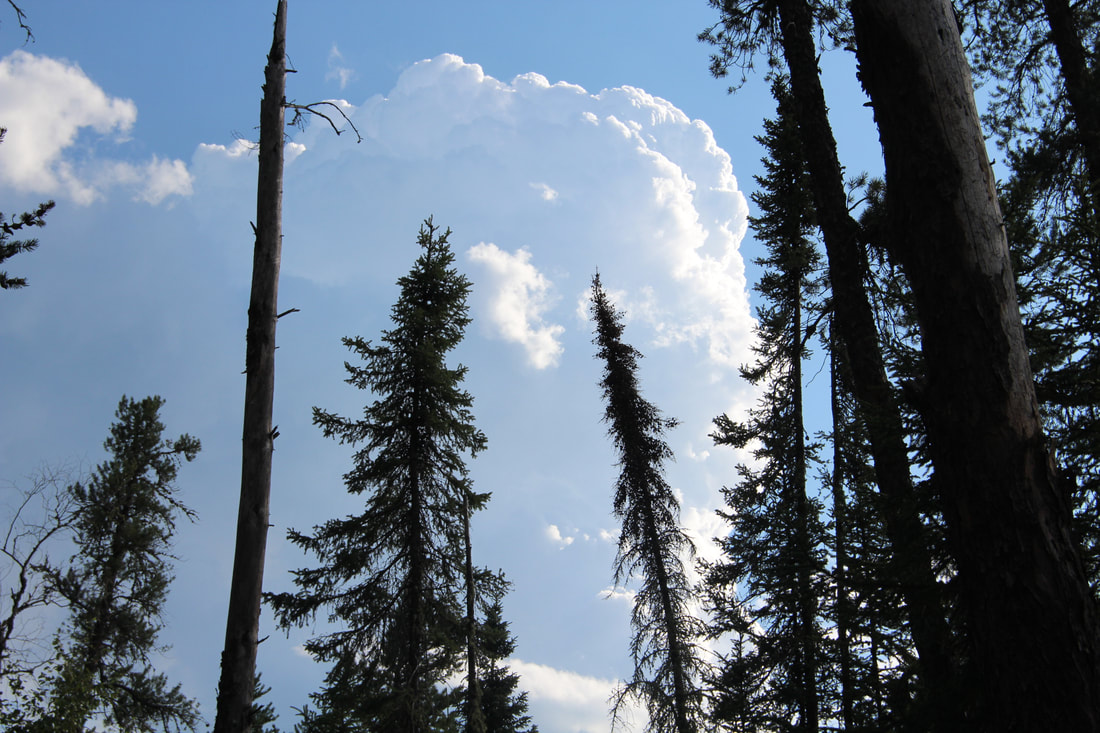|
More analysis from Julee Boan, with the NRDC! his blog was coauthored with Rachel Plotkin, Boreal project manager with the David Suzuki Foundation in Canada. Whenever a conservation agreement — a recovery tool under Canada's Species at Risk Act — is announced, it is hailed as a breakthrough. Conservation agreements are intended to signal that the federal government and a partner (e.g., provincial or Indigenous government) are committed to undertaking joint actions that benefit species at risk and enhance their chances of survival. It has now been a year since Canada entered into such an agreement with Ontario for boreal caribou, on Earth Day, 2022. At the time, environmental lawyers and watchdogs expressed deep concern that the agreement would likely do more harm than good. The “caribou in the room” was that, more than a decade after the federal boreal caribou recovery strategy and accompanying guidance were published, Ontario continued to willfully ignore the fundamentals of critical caribou habitat protection, which are predicated on enforcing limits to cumulative disturbance. The conservation agreement risks the possibility of providing green cover for the province. So, have caribou’s chances of survival been enhanced under the agreement? Regrettably, the last time Ontario released any information on the condition of caribou populations was almost a decade ago. The province conducted “Integrated Range Assessment Surveys” between 2010 and 2013 to calculate caribou population size, recruitment rates, survival, population trend and probability of occupancy. The final reports were released in 2014 and survival rates showed disturbing trends of decline. Despite the lack of evidence that forest management is supporting caribou recovery, in 2020, the Government of Ontario, after years of aggressive lobbying, granted the forestry industry a permanent exemption from having to comply with the province’s Endangered Species Act – the only tool with the capacity to prioritize species recovery. It is well documented that industrial disturbance in the mature, unfragmented forests on which caribou depend is most likely driving their decline. As such, to understand how caribou are faring under the agreement in the absence of population trend data, we must turn to the province’s management of caribou habitat as the best proxy. In other words, we can look at how disturbance levels have or are likely to change under the conservation agreement in forests where logging and mining occur. According to recent research, “the 65% undisturbed critical habitat designation in Canada's boreal caribou Recovery Strategy may serve as a reasonable proxy for achieving self-sustaining populations of boreal caribou in landscapes dominated by human disturbances”, while acknowledging that some populations may be more or less vulnerable. In most ranges, the cumulative disturbance has increased; Ontario’s forest management policies continue to lead to more fragmentation of caribou habitat. (Although Ontario hasn’t publicly reported this range disturbance data since 2018.) On the ground, a number of new forestry cutblocks and roads in undisturbed caribou habitat are planned in current Forest Management Plans, as illustrated in our map below. Map of northern Ontario, Canada. (See Above) Dots show approximate location of new roads and logging planned in undisturbed caribou habitat by 2030. Remaining caribou range is shown in green and existing main roads are shown in red. Data Source: Ontario GeoHub (April 2023) and Ontario Forest Management Plans (Natural Resources Information Portal, April 2023, https://nrip.mnr.gov.on.ca/s/fmp-online?language=en_US). Ontario’s failure to take the necessary steps to recover caribou and protect existing habitat has not gone unnoticed by the federal government, which has assessed that the province is failing to effectively protect critical habitat. The assessment triggers a mandatory recommendation to Cabinet for federal intervention (called a critical habitat protection order), so we can assume that such an order is either being pulled together or has already been presented. On the heels of the federal environment minister’s assessment, Ontario committed $29 million to put toward caribou research, monitoring and protection. However, how those funds will be spent remains ambiguous. Resources are necessary to finance caribou recovery, but what Ontario has put on the table lacks a plan and targets for habitat protection and cumulative effects management. In the absence of the effective protection of critical habitat in Ontario, the federal government must stop the ongoing loss. Despite the predictable fear-mongering by forest industry lobbyists, if Cabinet issues a protection order, it lasts only five years, providing time for the province to put its funding to good use. Since Ontario has declared it could sustainably double the amount of logging in the province, industry’s bemoaning that protecting more caribou habitat will “devastate” northern economies has been met with considerable skepticism. Federally, the government has committed to halt and reverse nature loss, an essential measure to forestall an imminent sixth extinction crisis. It has the authority under the Species at Risk Act to intervene, and a recent Commissioner on the Environment and Sustainable Development report has critiqued the ministry’s failure to issue these orders. Further, despite the growing use of conservation agreements to advance caribou protection across Canada (eleven conservation agreements have been signed for boreal and southern mountain caribou since 2019), none of these agreements have met the important criteria to protect critical habitat in alignment with the Species at Risk Act. A pause on new roads and logging in undisturbed areas until critical caribou habitat is effectively protected, while third-party monitoring is conducted to update our understanding of the condition of caribou populations, could slow declines and provide the needed pivot toward recovery. It’s time for the Ontario government to share how the $29 million will be spent to protect caribou habitat and monitor populations and for Canada to show leadership by implementing a protection order.
0 Comments
Leave a Reply. |
AuthorJoin the Conversation and be part of Process Archives
May 2024
Categories |
©2020 Friends of Wabakimi All Rights Reserved



